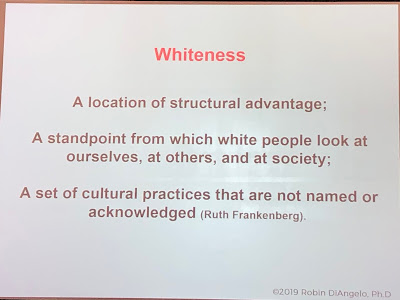As I left the room, I vaguely remember the teacher warning me to be careful about the electrical cord and not let it drag on the floor. Do you see where this is going?
I made it almost all the way back to my classroom when the cord slipped from the notch I thought I had secured it in, and it fell directly in the path of the wheeled cart. My forward motion pushed the entire cart, large TV and VCR, over and it crashed in the middle of a relatively quiet hallway. Doors flew open, and to be honest, the concern was only for the technology. The teacher whose classroom I was returning to had some choice, loud, public words for me:
"Didn't I tell you to be careful about the cord Ricca? What's the matter with you?" I am not ashamed to admit that I started crying, overwhelmed by the situation, my teacher's comments, and I disappeared into the guidance office.
I had my own moments with my own students that I'm not proud of as a teacher. In one of my first years teaching in Chicago, I lost my patience when a student of mine failed to turn in his homework (yes, I also cared too much about homework at that place in my career). I publicly questioned his commitment to the class, to our time together, and to his own education. When I was done embarrassing him, I got around to asking why he didn't do his homework.
"My little brother ran away last night, and we spent the night looking for him." I sadly repeated, in earnest, what had been done to me less than a decade earlier.
When I think about these moments in my own educational history, I'm reminded of a line from Dr. Haim Ginott, that has been in a frame in every single classroom I've taught in, and in every single office that I've worked in. "As a teacher, I possess tremendous power to make a child's life miserable or joyous. I can be a tool of torture or an instrument of inspiration. I can humiliate or humor, hurt or heal."
Now, I share these stories in full humility. I've failed in this regard as a husband, as a daddy, as a teacher, as a superintendent, and as a human being. I will fail again. I share this in full humility, hoping that others will not repeat my mistakes. They're easy to fall into and hard to climb out of. It requires a substantial amount of self-awareness and an endless supply of patience.
If nothing else, do remember how much our words matter, especially during this incredibly hectic time of year.
 |
| Photo courtesy of www.thegoalchaser.com |























